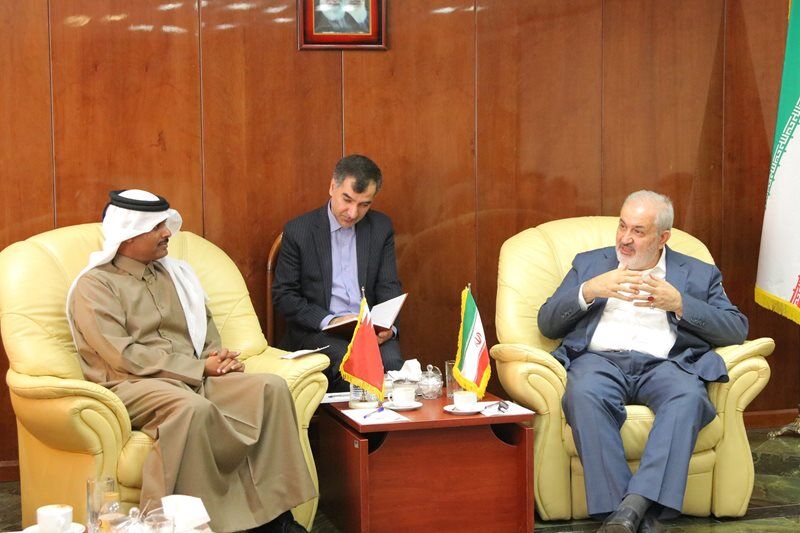
Government officials released Qatar’s first national broadband strategy on Sunday, a plan designed to guide and accelerate the rollout of high-speed internet across the country.
One of the key components of the document involves lowering prices and increasing accessibility for residents by injecting more competition into Qatar’s internet market.
Speaking at the opening of the Qatar National Broadband Symposium yesterday morning, Hessa Al-Jaber, the country’s minister of information and communications technology said:
“The speed and affordability of both fixed and mobile broadband remain major issues … (We want to) make the internet available to every citizen regardless of their social or economic situation.”
Residents in Qatar currently pay some of the highest rates in the Gulf for telecom services like phone and internet, according to a study released in October from the International Telecommunication Union, a United Nations agency. This is in part because customers’ internet service provider depends on their location.
But under the new strategy, residents would be able to choose between at least two competing broadband retail providers, regardless of whether they live in Doha or one of the further out towns like Al Khor or Al Rayyan, by 2016, Al-Jaber said.
The 2016 target coincides with the scheduled completion of a national broadband network that is open to all of the country’s telecom providers and forms the basis of the government’s vision for broadband competition in Qatar.
Making connections
Limited competition in Qatar’s fixed broadband market is significantly holding back the country’s economic development and diversification efforts, the 59-page report states. Internet users generally only have access to a single service provider – either Ooredoo or Vodafone – in a given area, it adds.
Because government authorities want to avoid duplicating physical network infrastructure in the ground and within buildings, they plan to instead foster competition at the service level. This means internet providers will have to rely on the existing open network infrastructure of a third party, and then compete for customers through prices, products and services.
Despite this vision, Qatar currently has two major network rollouts underway.
Rollout reality

Ooredoo is rolling out its own fiber-to-the-home network across the country. Vodafone’s fixed network, meanwhile, is reliant on the state-backed Qatar National Broadband Network’s deployment of a nationwide fiber grid.
QNBN was established in 2011 to provide Qatar’s licensed telecom operators with open and equal access to broadband network infrastructure in exchange for a fee. Its presence means Vodafone and future market entrants don’t have to build their own networks, a model praised by Vodafone CEO Kyle Whitehill.
“That’s the answer for Qatar, given its size … (a single network) gives you efficiency and scale,” he said during a panel discussion during Sunday’s symposium.
Ooredoo started to deploy its broadband network before QNBN was created. To avoid duplication, the two entities signed an agreement that gives QNBN access to Ooredoo’s network ducts and avoids the need to dig up roads and lay more telecom gear.

All residents of Barwa City gained access to high-speed internet service from Vodafone by the end of the summer. Additionally, QNBN has since laid down fiber along Barwa Commercial Avenue and brought high-speed internet connectivity to 32 commercial and residential towers in West Bay.
For its part, Ooredoo’s fiber connections reach roughly 230,000 homes in Qatar – about 80 percent of all residences – and actually connect approximately 100,000 dwellings to the internet, Ian Dench, Ooredoo’s chief marketing officer, said Sunday.
More competition?
While the report references the “eventual” entry of additional internet service providers, it offers no hint as to when a third operator could arrive in Qatar to compete for customers with Ooredoo and Vodafone.
This decision could fall to a new telecommunications regulator that will be independent from the government and is envisioned to be created next year.
Ministry officials say that giving consumers and businesses a choice in internet service providers will enable greater competition for other retail services – such as disaster recovery, cloud data storage and data centers – offered by third parties.
Other goals
In addition to giving all of Qatar’s population the ability to chose between at least two broadband retail providers by 2016, the national broadband plan also aims to:
- Give 95 percent of households the ability to access affordable and high-quality broadband services of at least 100 Mbps (megabits per second) effective download and 50 Mbps effective upload speeds by 2016;
- Give all businesses, schools, hospitals and government institutions high-quality access to at least one Gbps (gigabit per second) effective symmetrical speeds by 2016; and
- Expand digital literacy to all of the “mainstream population” by 2016 in conjunction with guarantees of the user’s digital privacy, protection of personal data and freedom of opinion and expression.
Thoughts?







